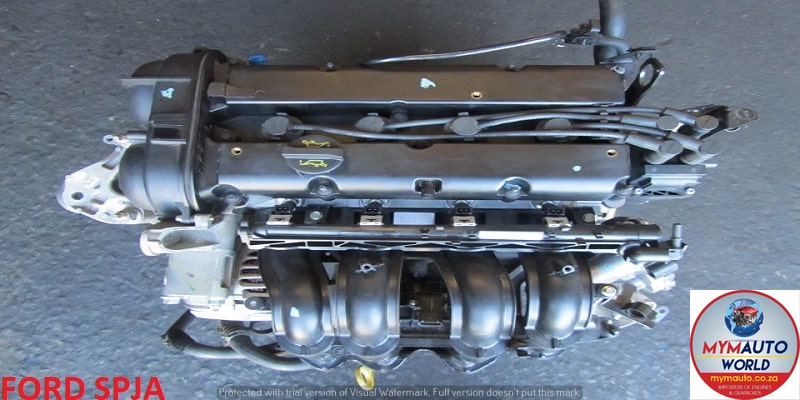How a Ford Fiesta Engine Tune-Up Can Improve Your Car’s Performance
How a Ford Fiesta Engine Tune-Up Can Improve Your Car’s Performance
Blog Article
Opening the Power of Engines: A Comprehensive Guide to Performance and Effectiveness
Comprehending the complex auto mechanics of engines is important for both efficiency lovers and day-to-day vehicle drivers. The answers may redefine our strategy to engine performance and effectiveness in means that are both informing and necessary.
Understanding Engine Fundamentals
What comprises the fundamental mechanics of an engine? At its core, an engine is a device designed to transform gas into mechanical energy with a collection of regulated explosions or burning processes.
The crankshaft after that changes this straight motion right into rotational energy, which eventually powers the car. The camshaft manages the opening and closing of the shutoffs, controling the intake of air and gas and the expulsion of exhaust gases. Furthermore, the engine counts on a very carefully calibrated fuel-air combination, ignition system, and cooling down system to guarantee ideal efficiency and performance.
Understanding engine essentials also involves identifying the importance of engine cycles, such as the four-stroke cycle, that includes consumption, power, compression, and exhaust strokes. Each phase is crucial in making sure the engine operates smoothly and efficiently. Mastery of these essential auto mechanics prepares for exploring much more complicated engine characteristics and efficiency metrics, important for enhancing both power outcome and performance.
Trick Efficiency Metrics
Trick efficiency metrics are essential for assessing an engine's effectiveness and power outcome, offering beneficial understandings for both suppliers and customers. These metrics offer as standards for engine efficiency, enabling for notified decisions in design, manufacturing, and buying.
Among the key metrics is horsepower, which quantifies the engine's ability to execute job over time. Torque, determined in pound-feet, is an additional crucial metric that indicates the engine's rotational force, straight influencing velocity and pulling ability. Gas effectiveness, normally gauged in miles per gallon (MPG) or litres per 100 kilometers (L/100km), evaluates just how effectively the engine transforms fuel right into activity, impacting ecological considerations and operational prices.
In addition, thermal effectiveness steps how well an engine transforms gas energy right into valuable work, revealing understandings right into energy losses largely with warm. Emission degrees, including carbon dioxide and NOx, are likewise critical, showing the engine's ecological effect and compliance with regulative standards.

Tuning Methods for Effectiveness
Tuning methods play a substantial duty in enhancing engine efficiency by enhancing performance metrics determined in earlier discussions (ford fiesta engine). Different techniques exist to tweak an engine, each adding to boosted gas economic situation and lowered exhausts
One reliable strategy is adjusting the air-fuel proportion, ensuring the engine runs within the optimum burning regimen. A leaner blend can boost gas performance, yet it needs to be balanced to stop misfires or engine knock. Additionally, reprogramming the engine management system can recalibrate parameters such as ignition timing, which better boosts effectiveness while preserving power output.
One more crucial method involves changing the consumption and exhaust systems. Upgrading to high-performance air filters and exhaust headers can reduce back stress, assisting in much better airflow. This permits the engine to breathe more openly, resulting in improved combustion efficiency.
In addition, the application of innovative adjusting devices, like dyno screening, offers specific information check out here that enables targeted changes. Regularly checking these performance metrics makes certain that adjusting efforts produce the preferred efficiency results. Jointly, these methods not just strengthen engine efficiency but additionally add to lasting sustainability in engine operations.
Upkeep for Optimal Efficiency
Normal engine maintenance is essential for accomplishing optimum efficiency and longevity. A properly maintained engine not only operates successfully but likewise lessens the risk of expensive fixings and breakdowns. Secret parts requiring normal attention consist of oil, filters, belts, and trigger plugs.
Changing the engine oil at suggested periods is critical, as oil lubes moving components and protects against overheating. Likewise, changing oil and air filters makes certain that impurities do not hinder engine function. Overlooking these elements can cause lowered efficiency and potential engine damage.
In addition, examining and replacing worn belts and pipes is crucial to avoid abrupt failures. Timing belts, in certain, need to be changed according to the supplier's timetable to stay clear of tragic engine damage.
Ignition system should also be examined and changed as needed, because they play a vital role in ignition and fuel efficiency.
Future Trends in Engine Technology
Accepting advancements in modern technology, the future of engine style is poised to reinvent performance and performance throughout various applications. Crossbreed and fully electrical powertrains are becoming significantly traditional, offering minimized emissions and boosted fuel performance.
Furthermore, developments in products science are causing lighter, stronger elements that boost engine performance while lowering power usage. Advanced manufacturing strategies, such as 3D printing, enable for the production of complex geometries that boost air flow and thermal monitoring, thus enhancing burning processes.
In addition, the combination of fabricated intelligence and maker learning is set to change engine diagnostics and efficiency tuning. These innovations can evaluate large quantities of information in real time, enabling anticipating upkeep and customized performance enhancements.
Final Thought
In final thought, unlocking the power of engines requires an extensive understanding of their technicians and performance metrics. Applying efficient adjusting techniques and sticking to routine maintenance techniques considerably boost engine capacities.
Additionally, the engine relies on a thoroughly calibrated fuel-air combination, ignition system, and cooling system to ensure optimum performance and performance.
Comprehending engine basics additionally involves identifying the importance of engine cycles, such as the four-stroke cycle, which consists of intake, exhaust, power, and compression strokes. Proficiency of these fundamental technicians lays the groundwork for checking out more complicated engine dynamics and efficiency metrics, necessary for go to website optimizing both power outcome and efficiency.

Welcoming advancements in technology, the future of engine layout is positioned to reinvent performance and effectiveness across different applications.
Report this page